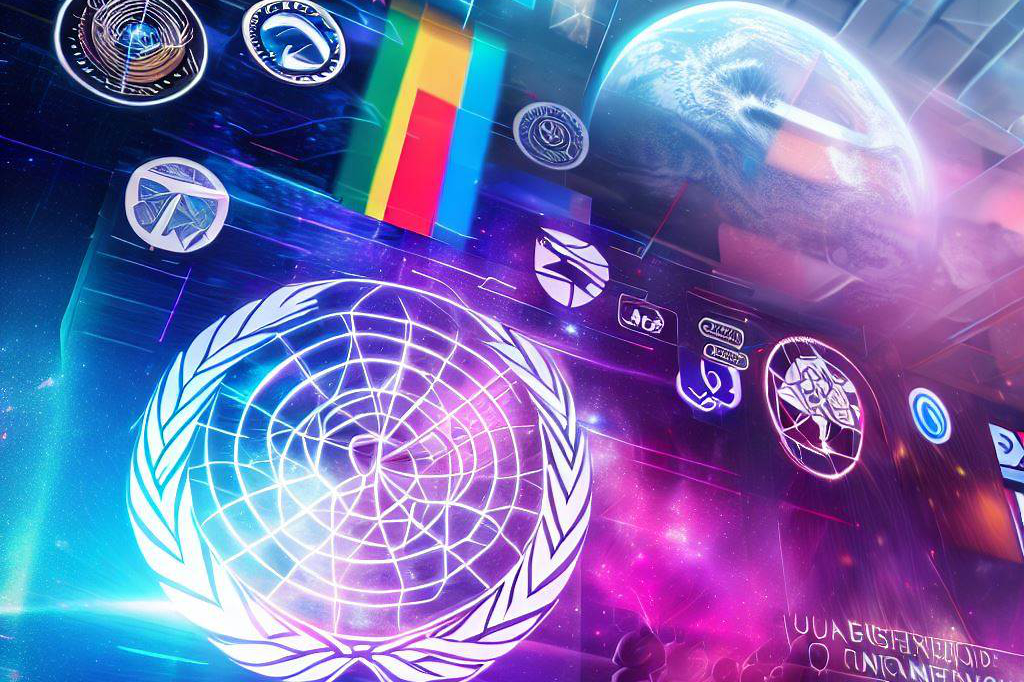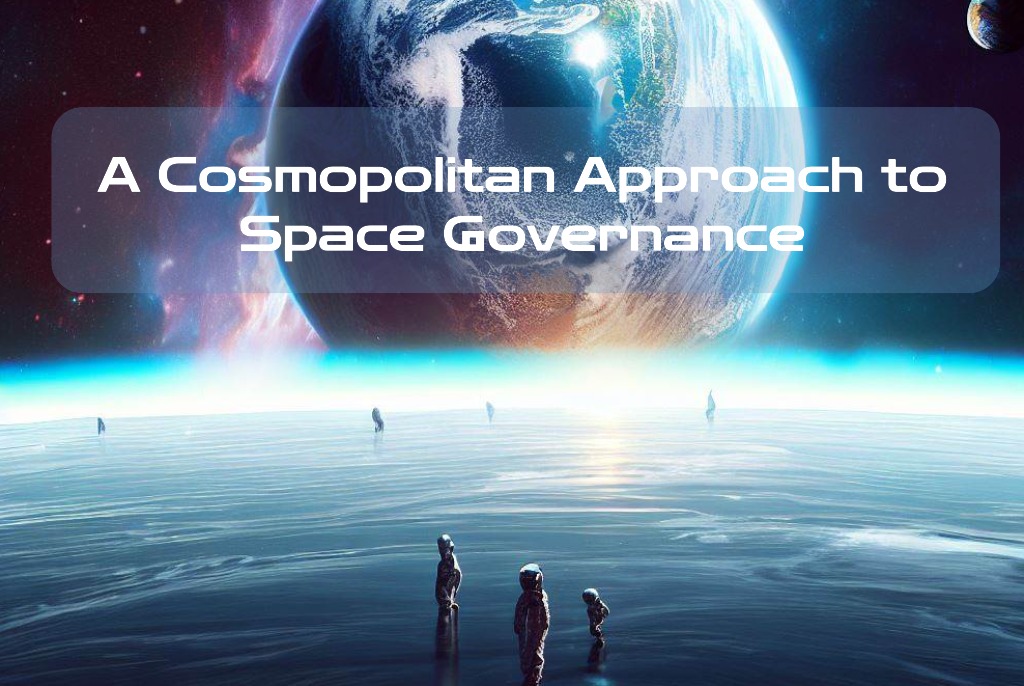Exploring Space: A Collective Responsibility
The exploration and utilization of space have been among the most remarkable achievements of humankind. Since the launch of the first artificial satellite, Sputnik 1, in 1957, humanity has made tremendous strides in studying our solar system and beyond. Moreover, the advent of new technologies has opened up opportunities for commercial space activities that were once unimaginable.
Space is no longer just a playground for superpowers but also a domain where private companies are investing heavily. However, as more actors venture into space, potential issues arise regarding who can do what and how they can do it.
Space governance refers to the legal and policy frameworks that regulate activities in outer space to ensure their peaceful and sustainable utilization. The concept of a common heritage for mankind plays a central role in shaping space governance policies.

The Common Heritage of Mankind: What Does That Mean?
The common heritage of mankind is a legal principle that suggests certain resources belong to all humanity and should be shared equitably for the benefit of present and future generations. It originated from discussions surrounding international seabed law in the United Nations during the 1960s, when many countries sought fair access to resources located beyond their national jurisdiction.
This same principle applies to outer space. The Outer Space Treaty (OST), which entered into force in 1967, states that “outer space, including the Moon and other celestial bodies, shall be free for exploration and use by all States without discrimination,” but it also emphasizes that “outer space is not subject to national appropriation by claim sovereignty.” Thus, any resources found or utilized must be done so equitably under international law.
A Cosmopolitan Vision for Space Governance: Why Is It Important?
A cosmopolitan vision for space governance means recognizing that outer space belongs to all humanity rather than a select few nations or actors. It implies that space activities should be conducted with a global perspective, taking into account the interests of all countries and peoples.
Such an approach is necessary because space technology has become essential to our daily lives, from telecommunications to weather forecasting and navigation. Moreover, a cosmopolitan vision acknowledges that space is neither infinite nor immune to environmental degradation.
Thus, we need to consider how our activities in space impact the environment and strive towards sustainable use of resources. Without a cosmopolitan perspective, any governance system for outer space may degenerate into a “tragedy of the commons,” where individual actors pursue their self-interests at the expense of others, leading to conflict and instability.
The need for a cosmopolitan vision for space governance is more critical than ever as commercial actors become dominant players in this realm, especially since they may prioritize profitability over ethical considerations. As such, it is imperative that we develop governance systems that are transparent, equitable, and respectful of human rights while also fostering innovation and growth in this new frontier.
The History of Space Governance

From Sputnik to Star Wars: A Brief Overview of Space Governance
Space exploration and activities have come a long way since the launch of Sputnik by the Soviet Union in 1957, marking the beginning of the space race between superpowers. During the Cold War era, space was considered a strategic asset and a means for national prestige.
This led to an intense competition between the United States and the Soviet Union to demonstrate dominance through their achievements in space. However, this early era was also marked by cooperation between these two nations, with successful joint missions such as the Apollo-Soyuz Test Project, which demonstrated that peaceful collaboration in space is possible.
In the following decades, international cooperation led to several significant treaties and agreements regulating activities in outer space. The Outer Space Treaty of 1967 serves as a cornerstone for international law governing outer space activities.
Its principles include peaceful use, prevention of weaponization, and equitable access to resources.
Other important treaties include
- The Rescue Agreement (1968),
- Liability Convention (1972),
- Registration Convention (1975)
- and Moon Agreement (1979).
Introducing Commercial Actors: New Players in Space Governance
The end of the Cold War marked a new phase for space exploration when commercial entities started entering into this field with ambitious plans for earth observation satellites or manned missions. Private companies like SpaceX began exploring opportunities beyond earth orbit such as Mars missions which can only be achieved through strong partnerships with governments that hold technical expertise along with funding capabilities.
The emergence of private actors has resulted in new challenges to traditional regulatory frameworks developed during the Cold War period, where government entities were primary stakeholders working on joint projects within clear legal frameworks. Today’s landscape is marked by increasing complexity due to competition among actors from different countries as well as the proliferation of actors with diverse interests, including private enterprise driven by profit motives.
The Challenges Ahead: Debates on Militarization and Commercialization
The use of space for military purposes is a contentious issue in space governance. Despite the Outer Space Treaty banning weapons of mass destruction, military activities such as reconnaissance and missile defense systems have been developed in orbit.
This has sparked concerns about the weaponization of space and how it threatens the peaceful use of outer space. Moreover, the commercialization of space resources is another significant challenge facing contemporary space governance.
There are debates surrounding the extent to which private entities should be allowed to utilize outer space resources, such as water on the moon or asteroids, for profit-making ventures. Some argue that it violates the principle of common heritage, while others believe that commercial activity will drive innovation and economic growth in areas such as satellite servicing, mining, or tourism.
While international cooperation has led to several significant treaties regulating activities in outer-space until today, rising challenges arising from new players like commercial enterprises are changing traditional frameworks. The debates around militarization and commercialization will need to be addressed within a cosmopolitan vision for effective and equitable governance in outer-space.
The Common Heritage of Mankind in Space

Exploring the Concept
The idea of the common heritage of mankind is a legal concept that was first introduced in 1949 and has been applied to a variety of resources, including the seabed, Antarctica, and outer space. The premise is that certain resources are held in trust for all humanity and should be used for peaceful purposes. In terms of space resources, this means that they should be used for the benefit of all countries and not exploited by one or a few nations.
This concept has been enshrined in international law through the Outer Space Treaty of 1967, which declares that “outer space, including the Moon and other celestial bodies, shall be free for exploration and use by all states without discrimination.” However, there is debate over how this principle should be applied in practice. Some argue that it means all nations have equal access to space resources, while others suggest it means resources should be managed collectively.
Current Debates
One current debate surrounding the application of the common heritage concept involves asteroid mining. With companies like Planetary Resources seeking to profit from harvesting minerals from asteroids, some worry that this could lead to an unequal distribution of wealth or even conflict between nations over access to these resources.
Another area of debate is whether resource extraction should be limited to scientific research or whether commercial exploitation can also occur. Some argue that allowing commercial exploitation will incentivize greater investment in space exploration, while others worry it could lead to environmental damage or excessive profits at the expense of other countries.
Ultimately, determining how best to apply the common heritage principle will require careful consideration and cooperation among nations. As humanity continues its exploration beyond Earth’s boundaries, it will become increasingly important to ensure equitable distribution and management of space resources for generations to come.
The Role of International Organizations in Space Governance

Regulating Space Activities
Space is a global commons, and it’s important to have regulations in place to ensure that countries use it responsibly. International organizations play a crucial role in space governance by creating and enforcing rules that promote the peaceful use of space. Three such organizations are the
- United Nations Office for Outer Space Affairs (UNOOSA),
- the International Telecommunication Union (ITU),
- and the International Civil Aviation Organization (ICAO).
UNOOSA is responsible for promoting international cooperation on space-related matters. It provides guidance to member states on issues such as space debris mitigation, satellite registration, and remote sensing data sharing.
ITU regulates the radiofrequency spectrum and satellite orbits to prevent harmful interference between different radio services. ICAO oversees air traffic management systems to ensure safe flight operations.
Promoting a Cosmopolitan Vision
Despite their important roles, international organizations face significant challenges in promoting a cosmopolitan vision for space governance. One challenge is ensuring equal access to space resources for all nations, regardless of their level of technological development or economic status. Another challenge is reconciling conflicting national interests with the common good of humanity as a whole.
International organizations must also address emerging issues such as commercialization of space activities and potential militarization threats. They need to find ways to encourage responsible behavior by private companies while preventing them from dominating access to valuable resources or creating security risks.
International organizations are essential players in regulating space activities and promoting a cosmopolitan vision for space governance. Despite the challenges they face, these organizations play an essential role in ensuring that outer space remains accessible, sustainable, and secure for generations to come.
The New Frontier: Emerging Issues in Space Governance

Commercialization: The Race for Profits in the Final Frontier
The 21st century has seen an increasing interest in space exploration, not only by governments but also by private companies. While this may seem exciting and a sign of progress, the commercialization of space is not without its drawbacks.
The race for profits has led to environmental concerns such as satellite debris, increased competition, and militarization. Private companies often operate outside the constraints of traditional space governance treaties as they are not bound by international law.
However, a cosmopolitan approach can help address these issues. Cooperation between different actors – governments, international organizations, and private companies – can lead to shared responsibility and equitable distribution of benefits from commercial activities in outer space.
Militarization: A Threat to Peaceful Coexistence?
Another emerging issue that requires immediate attention is the militarization of outer space. Several countries are investing heavily in military capabilities, which pose a threat to peaceful coexistence among nations. With weapons being developed that can target objects in space, there is an imminent danger that future conflicts on Earth may spill over into outer space.
To prevent this scenario from becoming reality, a cosmopolitan framework must be adopted where all actors agree to limit their military activities in outer space. International organizations such as UNOOSA can play a crucial role in facilitating dialogue among countries on this issue.
Debris Management: Cleaning Up Our Act
One major challenge facing us today is managing the growing amount of debris orbiting Earth. This debris includes everything from defunct satellites and rocket bodies to smaller pieces created through collisions or explosions. Not only does this increase the risk of collisions with active spacecraft, but it also poses a hazard to human life on Earth.
A cosmopolitan solution could involve collaboration between countries for the removal and disposal of debris using advanced technology such as space tugs or ground-based lasers to de-orbit debris. Additionally, international organizations could launch educational and awareness campaigns to help promote responsible space behavior and reduce the creation of debris in the first place.
Emerging issues such as commercialization, militarization, and debris management pose a significant challenge to the effective implementation of space governance. However, a cosmopolitan approach can help address these issues by promoting cooperation and collaboration among all actors involved in outer space activities.
Looking Ahead

Effective and Equitable Space Governance Requires a Cosmopolitan Vision
Space governance is a critical issue that requires a cosmopolitan vision to ensure equitable and effective management of space resources. As we have seen, the concept of the common heritage of mankind is central to this vision, as it emphasizes the need for shared responsibility and benefit-sharing in space exploration and resource utilization. However, there are still many challenges that must be addressed in order to realize this vision.
The Evolution of Space Governance
Throughout history, the rules governing space activities have evolved from unilateral control by major powers to a more collaborative approach involving international treaties and agreements. While progress has been made in promoting cooperation and limiting conflict in space, there are still areas where national interests conflict with the common interest of all humanity.
The Role of International Organizations
International organizations such as UNOOSA, ITU, and ICAO play an important role in regulating space activities and promoting cooperation among nations. However, they face significant challenges in promoting a cosmopolitan vision for space governance due to national interests and competing agendas among member states.
In order to realize a cosmopolitan approach to space governance, it is crucial that individuals from all backgrounds engage with these issues and advocate for policies that prioritize the common good over individual interests. With sustained effort from policymakers, academics, activists, and concerned citizens alike, we can create a future where access to outer space resources is truly equitable for all people on Earth.
TL;DR – FAQs
– 🚀 The exploration and utilization of space have been remarkable achievements of humankind, with advancements in studying our solar system and beyond.
– 🌍 Space governance refers to the legal and policy frameworks that regulate activities in outer space to ensure peaceful and sustainable utilization.
– 🤝 A cosmopolitan vision for space governance recognizes that outer space belongs to all humanity and activities should be conducted with a global perspective, considering the interests of all countries and peoples.
– 🌐 The concept of the common heritage of mankind plays a central role in shaping space governance policies, ensuring equitable access and shared benefits of space resources.
– 🌌 The history of space governance includes cooperation and competition between superpowers, international treaties governing space activities, and the emergence of commercial actors.
– 🌐 Challenges in space governance include debates on militarization, commercialization, and equitable distribution of space resources.
– 🌍 International organizations such as UNOOSA, ITU, and ICAO play crucial roles in regulating space activities and promoting a cosmopolitan vision for space governance.
– 💼 Emerging issues in space governance include commercialization, militarization, and debris management, which require cooperation and collaboration among all actors involved.
– 🌍 Effective and equitable space governance necessitates a cosmopolitan vision that prioritizes shared responsibility and benefit-sharing in space exploration and resource utilization.

C M, a seasoned editor, journalist, and consultant, is deeply fascinated by the convergence of technology, space, and the future of humanity.
With a particular interest in transhumanity, futurology, and the philosophical and ethical dimensions of these domains, C M serves as the lead contributor to SpaceSpotlight and TranscendSphere.
When not penning insightful articles on these rapidly evolving fields, C M indulges in their love for podcasts and books, proudly embracing their status as a ‘Happy Nerd Extraordinaire!’



